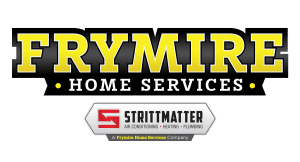Heating System Safety for Homeowners
Your heating system plays a significant role in keeping you and your family comfortable, but it is important for homeowners to understand how to use and maintain these systems safely. Understanding the heating elements in your home can go a long way in ensuring the safety and comfort level of your family. Here are some tips to keep you safe.
Carbon Monoxide
Carbon monoxide in homes is exceedingly rare, but without proper HVAC system maintenance, it can be deadly. Below are a couple of ways to mitigate our exposure to carbon monoxide:
- Proper maintenance to ensure that your furnace is not clogged with debris
- A regular check of system with flue pipes (which regulates removal of gasses) is essential
- Carbon monoxide monitors are highly recommended in homes with attached garages as even mild exposure to CO can cause headaches, dizziness, nausea & fatigue
Upper & Lower Combustion
This is the process of bringing in fresh air from the outside to the furnace for combustion. With this type of process, proper maintenance is important.
- Commonly located in closets, the furnace needs to be free of excess storage as the air is flowing regularly
- Regularly checking ductwork or performing duct cleaning services can also ensure safe and proper airflow in your home
- Dusty vents must be cleaned since dust buildup can restrict air from circulating throughout your home
- The heating system needs to be regularly cleaned to ensure proper airflow for the furnace
Electric & Gas Heaters
These are the two types of systems we use heat our homes.
- Electric heaters are usually made of a series of heat strips. Easier to maintain but costly, these elements will have dust and debris collect on them which give off a burning smell when turned on. This can lead to small fires if not cleaned properly
- Gas heaters use heat exchangers to heat your home. Regular maintenance is required as gas systems have many limits & safety features
- Keep your attics clean of boxes and items around your system
- A regular check of your flame sensor in gas systems is extremely important & highly recommended as this will be an indicator of any problems with your system
Air Filters
Your home’s air filters are probably the most common HVAC maintenance item homeowners are familiar with. When should I change them? What filter do I need? The answers to these questions can be the difference between a properly functioning system or inadequate airflow coupled with costly bills.
- Filters typically last for up to 45 days (about one and a half months). Most homeowner forget the timeline and change filters months later.
- A common practice is to change filters every time you receive your energy bill as this ensures filters are being changed in a timely manner and provides the home with proper air quality and airflow.
- Another key tip is to confirm the correct size of filter needed for you system. Using filters that are too small or too thick will cause debris to collect, resulting in poor airflow and inhibiting your system from functioning properly.
So what does all this mean for you? As a homeowner it is extremely important to have a licensed and certified technician perform maintenance on your unit. Without proper maintenance, units can lose up to 10% efficiency per year. Make it a point to schedule a fall and spring maintenance for your systems since this will likely spot issues before they turn into very costly repairs. A properly maintained unit will have a longer life span and keep you and your family safe and comfortable in your home.
Frymire Home Services understands the importance of quality HVAC work. We believe in educating and informing our customers, which will help them become experts in their home’s HVAC.
To learn more about air conditioning and heating, visit our website at frymire.com or call us at 972-913-2881 to schedule an appointment with one of our licensed technicians.






